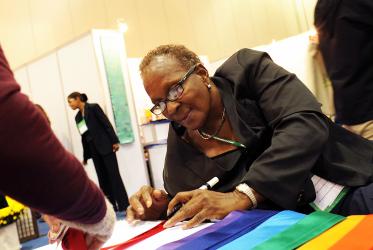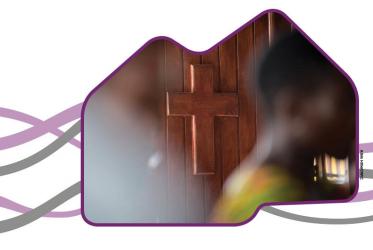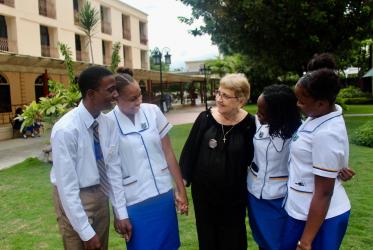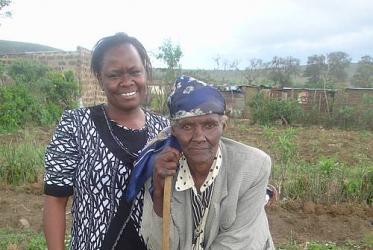Displaying 1 - 12 of 12
Thursdays in Black Online Bible Study: Difficult Paths
09 December 2021
16 Days: global voices ring strongly against gender-based violence
11 December 2020
Thursdays in Black ambassadors map positive future
06 October 2020
Dr Saïd Ailabouni: God is on the side of rejected, oppressed, occupied
12 September 2019
#WCC70: Children in the Ecumenical Movement
20 December 2018
“If this is the ecumenical movement I want to be in!”
11 October 2018
WCC celebrates life of Katie Cannon
16 August 2018
Fighting ignorance, fear and stigma through Bible study
09 December 2011








